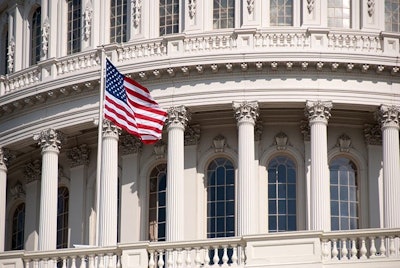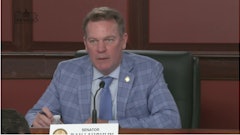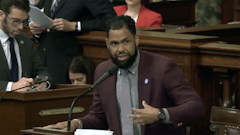
U.S. Senate Majority Leader Chuck Schumer says he will formally introduce his much-anticipated Cannabis Administration and Opportunity Act (CAOA) in April after releasing a draft of the proposal last summer.
Schumer announced the news at a Feb. 4 press conference, according to a NORML report.
The legislation, which was initially announced in July 2021, would decriminalize cannabis at the federal level by removing it from the Controlled Substances Act.
RELATED: Industry Experts, Stakeholders Offer Their Takes on Cannabis Administration and Opportunity Act
“In the coming weeks, we’re ramping up our outreach and we expect to introduce final legislation,” Schumer said at the press conference. “Our goal is to do it in April. Then we begin the nationwide push, spearheaded by New York, to get the federal law done. As the majority leader, I can set priorities. This is a priority for me.”
Industry stakeholders submitted their feedback on the CAOA by a Sept. 1, 2021 deadline for public comment, and Senate leadership has faced criticism for the delayed rollout of the legislation, as well as failing to advance more incremental policy reform, such as the SAFE Banking Act, which passed the House for the sixth time earlier this month as an amendment to the America COMPETES Act.
The CAOA joins two competing House bills, the MORE Act and the States Reform Act, which also seek to deschedule cannabis at the federal level.
“We are enthusiastic that the Senator is moving forward on his promise to prioritize cannabis policy reform in the 117th Congress,” said NORML Political Director Morgan Fox in a public statement. “It is our hope that the official introduction of CAOA jumpstarts hearings and debates in the Upper Chamber—debates that are long overdue."

























